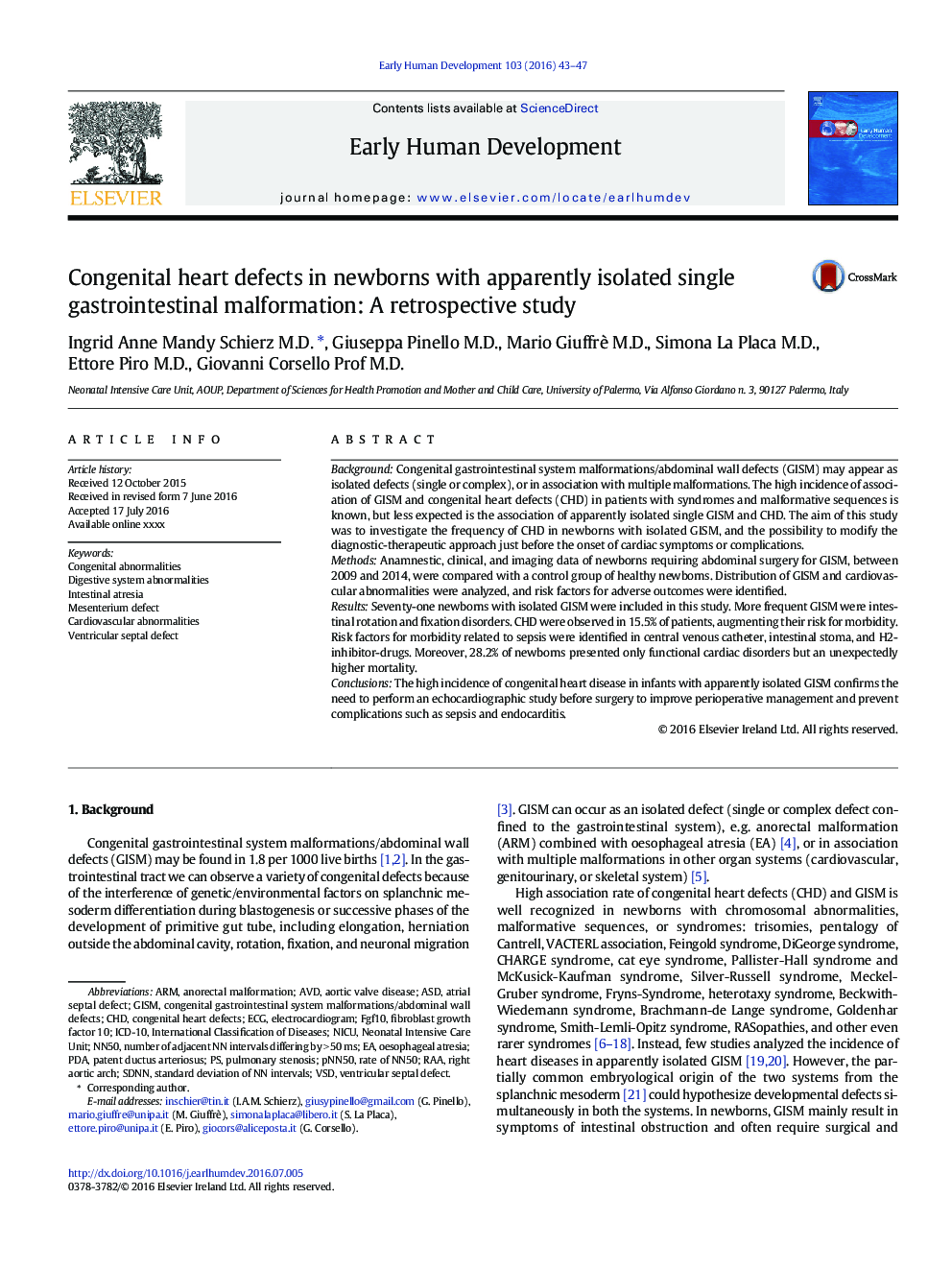| Article ID | Journal | Published Year | Pages | File Type |
|---|---|---|---|---|
| 3916367 | Early Human Development | 2016 | 5 Pages |
•Single-centre large population study of neonates with strict non-syndromic gastro-intestinal malformations (GISM).•Prevalence of congenital heart disease (CHD) in patient group 15.5%, but higher than expected also in control group.•Fetal shunts/hypertrophic cardiomyopathies can lead during postoperative course to significant cardiac dysfunction.•Independently from intensive care admission, there is a reduced heart rate variability linked to intestinal disease.•Early detection of functional cardiac diseases could improve perioperative management and complication surveillance.
BackgroundCongenital gastrointestinal system malformations/abdominal wall defects (GISM) may appear as isolated defects (single or complex), or in association with multiple malformations. The high incidence of association of GISM and congenital heart defects (CHD) in patients with syndromes and malformative sequences is known, but less expected is the association of apparently isolated single GISM and CHD. The aim of this study was to investigate the frequency of CHD in newborns with isolated GISM, and the possibility to modify the diagnostic-therapeutic approach just before the onset of cardiac symptoms or complications.MethodsAnamnestic, clinical, and imaging data of newborns requiring abdominal surgery for GISM, between 2009 and 2014, were compared with a control group of healthy newborns. Distribution of GISM and cardiovascular abnormalities were analyzed, and risk factors for adverse outcomes were identified.ResultsSeventy-one newborns with isolated GISM were included in this study. More frequent GISM were intestinal rotation and fixation disorders. CHD were observed in 15.5% of patients, augmenting their risk for morbidity. Risk factors for morbidity related to sepsis were identified in central venous catheter, intestinal stoma, and H2-inhibitor-drugs. Moreover, 28.2% of newborns presented only functional cardiac disorders but an unexpectedly higher mortality.ConclusionsThe high incidence of congenital heart disease in infants with apparently isolated GISM confirms the need to perform an echocardiographic study before surgery to improve perioperative management and prevent complications such as sepsis and endocarditis.
